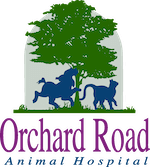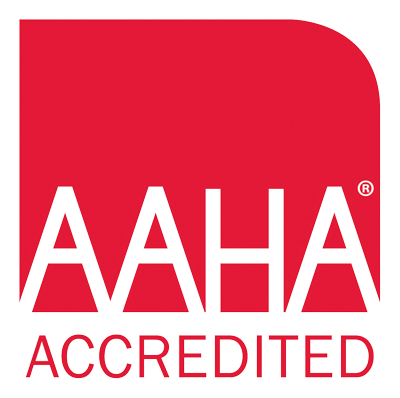How To Take Care Of A Puppy
One of the greatest joys in life is having a cuddly, cute puppy to have and hold. This is a memorable time for the entire family and everyone can participate in loving and caring for your new puppy. Our staff and veterinarians know what an exciting and special time this is for you and we want to provide you with the best information and health care to get a great start for your new puppy's life. The time you commit to this puppy at the beginning of his or her life will have a great impact on your relationship for the next 12-15 years.
Make The Most Of Your First Visit To The Vet
During your first veterinary visit, we will perform a thorough physical and gather information from you to help get a complete picture of your puppy's health. This is also your opportunity to gather all of the important puppy care information you need to be an informed, responsible and loving guardian to that puppy. Plan to spend one hour with us on the first visit and bring everyone in the family who will be taking an active role in the puppy's care. Below are some of the topics we will want to address at the first visit:

- Vaccination plans and schedules
- Safe options for diagnosing and treating internal and external dog parasites
- Signs of illness
- Spaying or neutering
- Behavior and basic obedience training
- Potty training
- Puppy diets
While most of these considerations and recommendations are the same for all puppies, our veterinarians will take into account factors such as breed, age, your lifestyle, and any current health or behavioral issues to make recommendations that will be tailored to your puppy's needs.
Quality Puppy Food Makes A Big Difference
Understanding puppy food is a huge part of responsible puppy care. After all, your puppy's body is growing in ways that will directly impact his or her quality of life for many years to come. It is important that you choose a puppy food that has been specifically formulated for young and growing dogs. Always look for a statement from the Association of American Feed Control Officials (AAFCO) that ensures the puppy food you choose meets or exceeds nutritional requirements for growing canine bodies.
- Small and medium-sized dogs can be weaned off of puppy food and onto adult dog food between 9 and 12 months of age
- Large breed dogs should stick with puppy food until they reach 1 year of age
Make sure your puppy has fresh and abundant water early in the day to help break down the puppy food, as well as to keep them hydrated. Having a regular feeding and walking schedule will be a tremendous help with potty training. Puppies will begin to learn, understand and enjoy a scheduled routine.
Also, be sure to follow a structured puppy feeding schedule. Discuss this with one of our veterinarians at your next appointment and ask for personalized advice to ensure you are feeding your puppy properly. The typical puppy feeding schedule would be:
- Age 6-16 weeks: 3-4 meals per day (4 meals only for very small breeds)
- Age 3-6 months: 2-3 meals per day
- Age 6-12 months: 2 meals per day
It is strongly recommended that you do not share food from your plate with your puppy. Puppies will often beg for whatever you are eating and it will be tempting to give them small amounts of your food. While it is not dangerous for them to eat most of what you eat, it is a really tough habit to break as they will begin to think that they should always share in your food.
It is best to stick with a good puppy diet and follow a feeding routine. Begin early training of the puppy on how to behave while you are eating. This may involve crating or asking the puppy to stay outside of the dining room/kitchen until he or she learns proper behavior.
Signs Of Illness In Puppies
Young puppies are susceptible to illnesses and diseases that can be very serious, most of which are entirely preventable. This is why puppy vaccinations are so important. However, puppy vaccinations alone will not prevent all illnesses. The key to preventing illness is being diligent in monitoring your puppy's behavior for symptoms. If you observe any of the following symptoms in your puppy, contact your vet immediately:

- Lack of appetite
- Poor weight gain
- Vomiting
- Swollen or painful abdomen
- Lethargy (tiredness)
- Diarrhea
- Difficulty breathing
- Wheezing or coughing
- Pale gums
- Swollen, red eyes or eye discharge
- Nasal discharge
- Inability to pass urine or stool
These symptoms all indicate urgent or emergency situations and require immediate veterinary care. Should you notice any of these symptoms, please call Orchard Road Animal Hospital immediately.
Schedule Puppy Vaccinations
Puppy vaccinations should take place every 3-4 weeks until 16 weeks of age during the first several months of life, and continue with booster immunizations throughout adulthood. There are core and non-core puppy vaccinations for your puppy and your veterinarian can help you decide which puppy vaccinations are right for your canine companion. A general puppy vaccinations schedule looks something like this:
- 6-10 weeks: DHPP, Kennel Cough
- 11-14 weeks: DHPP, Leptospirosis, Canine Influenza, Lyme Disease
- 15-16: DHPP, Leptospirosis, Canine Influenza, Lyme Disease, Rabies
It is important to stay current with your puppy vaccinations. Puppy vaccinations have been medically proven to combat so many preventable diseases and illnesses like parvovirus, that will occur without proper immunizations. Puppy vaccinations are a huge part of responsible puppy care, and your puppy deserves no less than every chance to be healthy and happy for life.
*Some puppies may need additional vaccinations against parvovirus after 15 weeks of age.
When Should You Spay Or Neuter Your Dog
We recommend spaying and neutering between 5-6 months of age. However, with some breeds, there is information that waiting even longer may be the most optimal to avoid certain cancers. Our veterinarians will review this information with you and discuss which breeds may want to consider an alternate plan.
The American Veterinary Medical Association supports early spaying and neutering. Delaying this procedure past sexual maturity can lead to increased incidences of mammary tumors in females and testicular cancer in males.
In general, puppies recover a lot faster than adult dogs. Therefore, it is an easier surgery for them and one that reduces the rate of disease later on. We absolutely love puppies and dogs of all kinds, but also believe that there are currently too many who end up in shelter situations and euthanized because of failures to control the pet population. For more information on spay or neuter services for your puppy, please visit our spay or neuter page.
Contact Us Today to Schedule A Veterinary Appointment For Your Puppy
Scheduling a puppy care appointment with our veterinary team is as easy as picking up the phone or sending us an email. Our veterinary staff is here to make your trip to the vet easy for you while ensuring it's also stress-free for your puppy.


